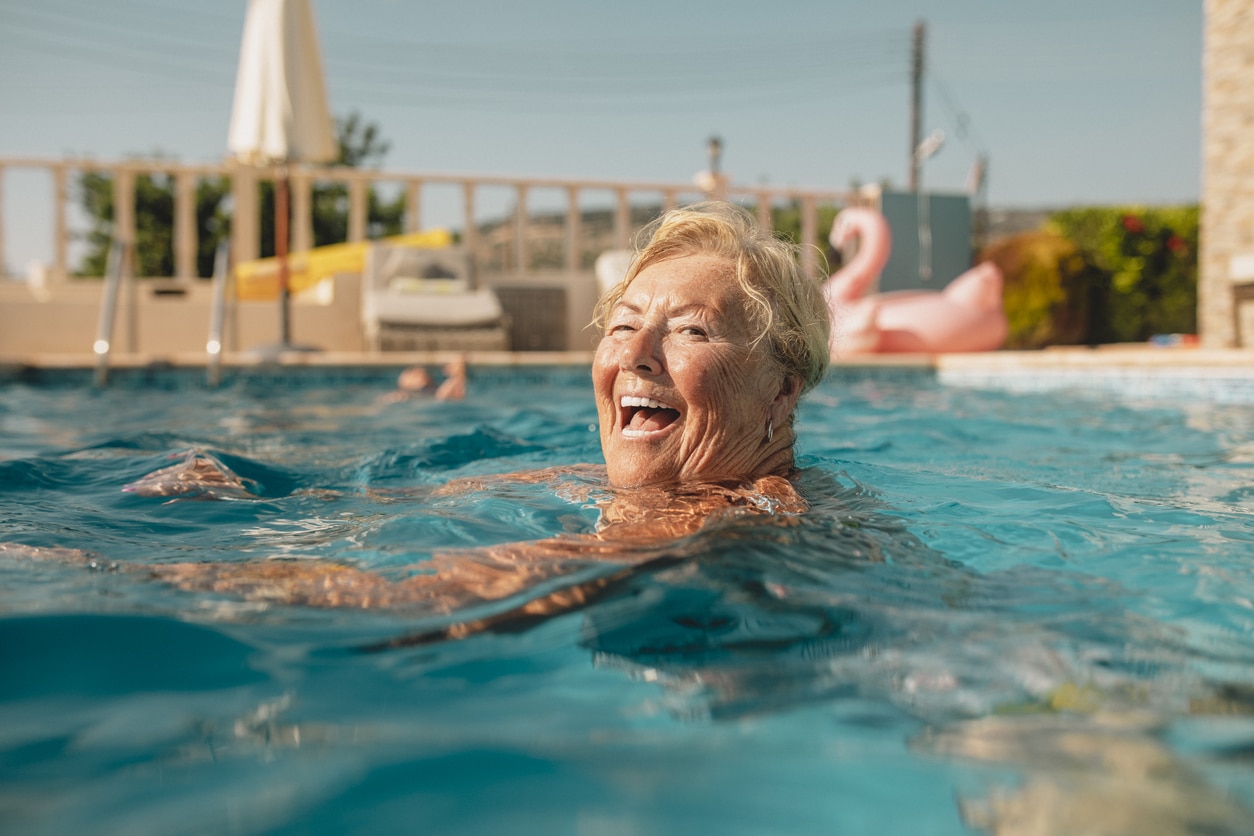Summer is the perfect time to take your kids to Frisco Water Park, drive to your favorite lake or even fly off for a beach vacation. Wherever you like to soak up the rays and relax in the water, take some time to learn about swimmer’s ear, how it affects your hearing and how you can protect against it.
What Is Swimmer’s Ear?

Swimmer’s ear, also known as otitis externa, is an ear canal infection that occurs when water stays trapped in the ear, providing a moist environment for bacteria to thrive. The condition is termed “swimmer’s ear” because it most commonly affects people who swim often, particularly in waters with a high bacterial content.
How Does Swimmer’s Ear Affect Your Hearing?
If left untreated, swimmer’s ear can lead to hearing loss from swelling and inflammation in the ear canal. While hearing loss can be alarming, it will usually go away when the infection clears up. In addition to hearing loss, patients with untreated swimmer’s ear may experience long-term infection, deep tissue infection, bone and cartilage damage or widespread infection.
Because complications can arise with untreated swimmer’s ear, make an appointment with your ENTat the onset of symptoms, no matter how mild. Your ENT provider will likely clean your outer ear canal and prescribe ear drops to clear the infection.
Tips To Prevent Swimmer’s Ear
The possibility of developing swimmer’s ear doesn’t need to stop you from enjoying pool-side fun with your family. The two most essential parts of swimmer’s ear prevention include drying and protecting your ears:
- Drying your ears. Drying your ears helps prevent fluid accumulation in the canal. Wear earplugs when you’re spending a lot of time in the water and towel dry the outside of your ears following a swim. If you feel water in your ears, tip your head from side to side, pulling your earlobe to help drain the liquid. Never use cotton swabs or other small objects to remove water—these objects can lead to perforation.
- Protect your ears. If you’re prone to swimmer’s ear, ask your ENT provider if drying drops are right for you, avoid swimming in polluted water and clean your earbuds or hearing aids regularly to stave off infection.
Remember that with a few simple protection tips, swimmer’s ear doesn’t need to be a part of your summer fun. To learn more about caring for your ear health, contact Collin County ENT today to make an appointment with one of our specialists.